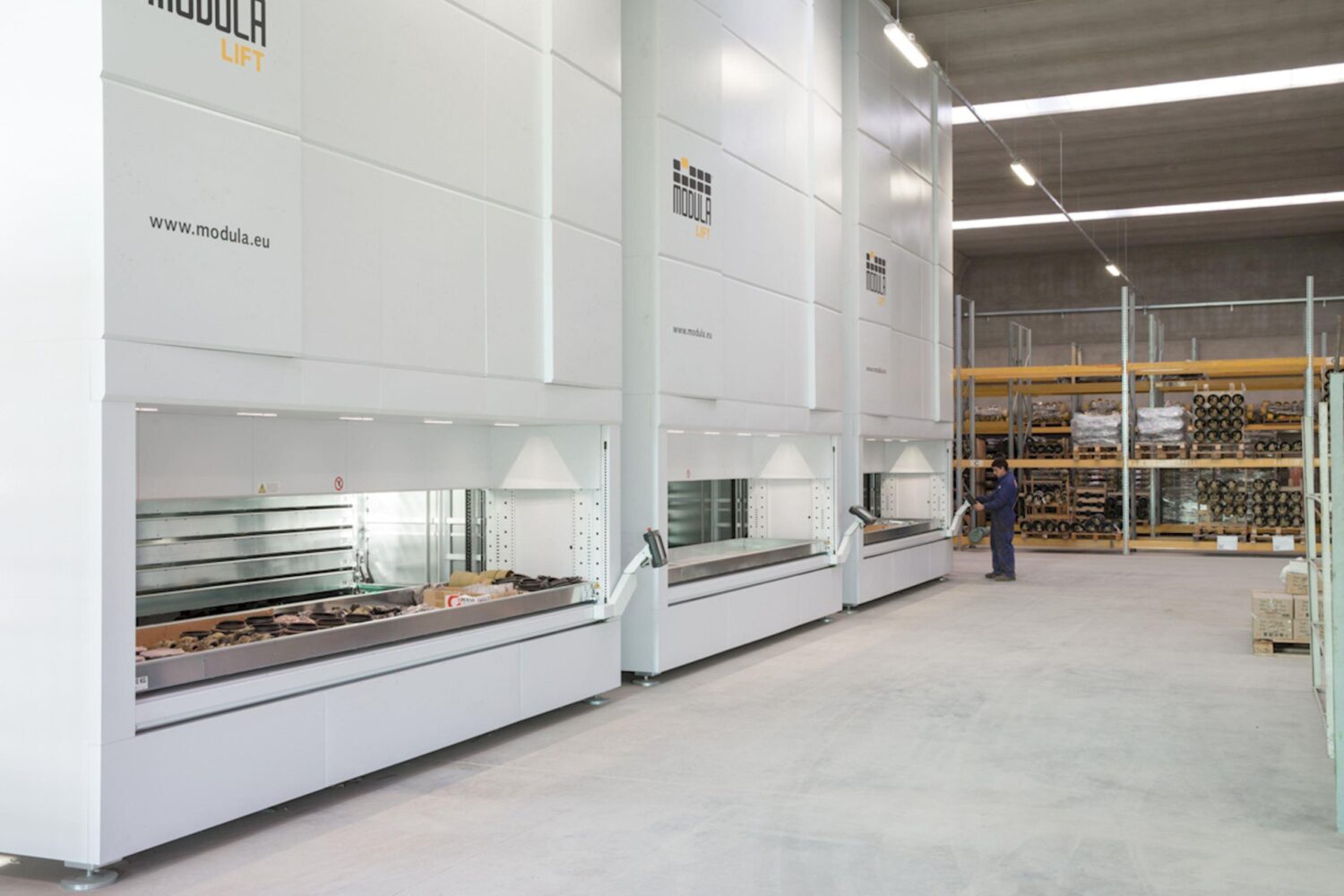Keda Manufacturing Optimizes Warehouse Efficiency with Modula Lifts
Case Study Summary
Founded in 1992, Keda Manufacturing, a leading company listed on the Shanghai and Swiss Stock Exchanges, operates in various sectors including building materials and clean energy. The company, known for its significant global presence, faced challenges in warehouse efficiency and space utilization. Keda Manufacturing’s goal was to reduce storage footprint, enhance operator efficiency, and minimize daily movements within the warehouse while transitioning into a comprehensive supplier in the ceramic industry.
Thanks to the installation of six Modula Lift ML75D, Keda Manufacturing has streamlined production processes while saving valuable floor space to accommodate its vast inventory of parts and packages.
The Challenge
Before integrating Modula’s automated storage solutions, Keda Manufacturing’s warehouse relied on traditional storage systems, which took up a significant amount of space and were labor-intensive. The company, which handles thousands of parts, faced issues with extensive manual labor, as workers were taking an average of 20,000 steps per day. This not only led to operational delays but also increased the risk of errors.
The Solution
Keda Manufacturing decided to revamp its warehouse operations by installing six Modula Lift ML75D units to house a wide array of components, including electronic parts and testing materials. This decision was made after a comprehensive comparison of more than 10 domestic and international manufacturers, with Modula being chosen for its quality and reliability.
The implementation of the Modula units shifted the company’s operational approach from ‘person-to-goods’ to ‘goods-to-person’ by integrating the units with an SAP system. Once the order is entered in SAP, the operators can use a scanner to retrieve information about the parts. This data is then sent back to the computer, which automatically dispatches the Modula unit to deliver the tray to the operator for picking. Once confirmed, the tray is automatically retrieved, eliminating the need for human intervention.
This has decreased the time required to retrieve specific parts, from 2 minutes to just 45 seconds. This not only has saved time but has also significantly reduced space requirements for material preparation and receiving areas. The Modula units occupy roughly 640 sq2 and store over 3,000 different parts. To store the same amount of parts, traditional storage methods would require approximately 11,000 sq2.
In terms of labor efficiency, Keda Manufacturing was able to reduce the number of required workers from eight to five. This led to significant cost savings, and the company expects to fully recover the installation cost in about five years. It will then be a source of pure cost savings. The smooth operation and positive reception of the Modula units have encouraged Keda Manufacturing to further expand the use of Modula automated systems, with plans to add two more units to the six already implemented.
Benefits of Modula VLM for Keda Manufacturing
- Six ML75Ds store over 3,000 parts in 640 sq2
- Saved approximately 10,000 sq2 feet compared to traditional storage methods
- Easy integration of Modula WMS software changed operations from “person-to-goods” to “goods-to-person”
- Increased picking accuracy and efficiency of stored parts from 2 minutes to 45 seconds
- Reduced operational labor that led to significant cost savings
